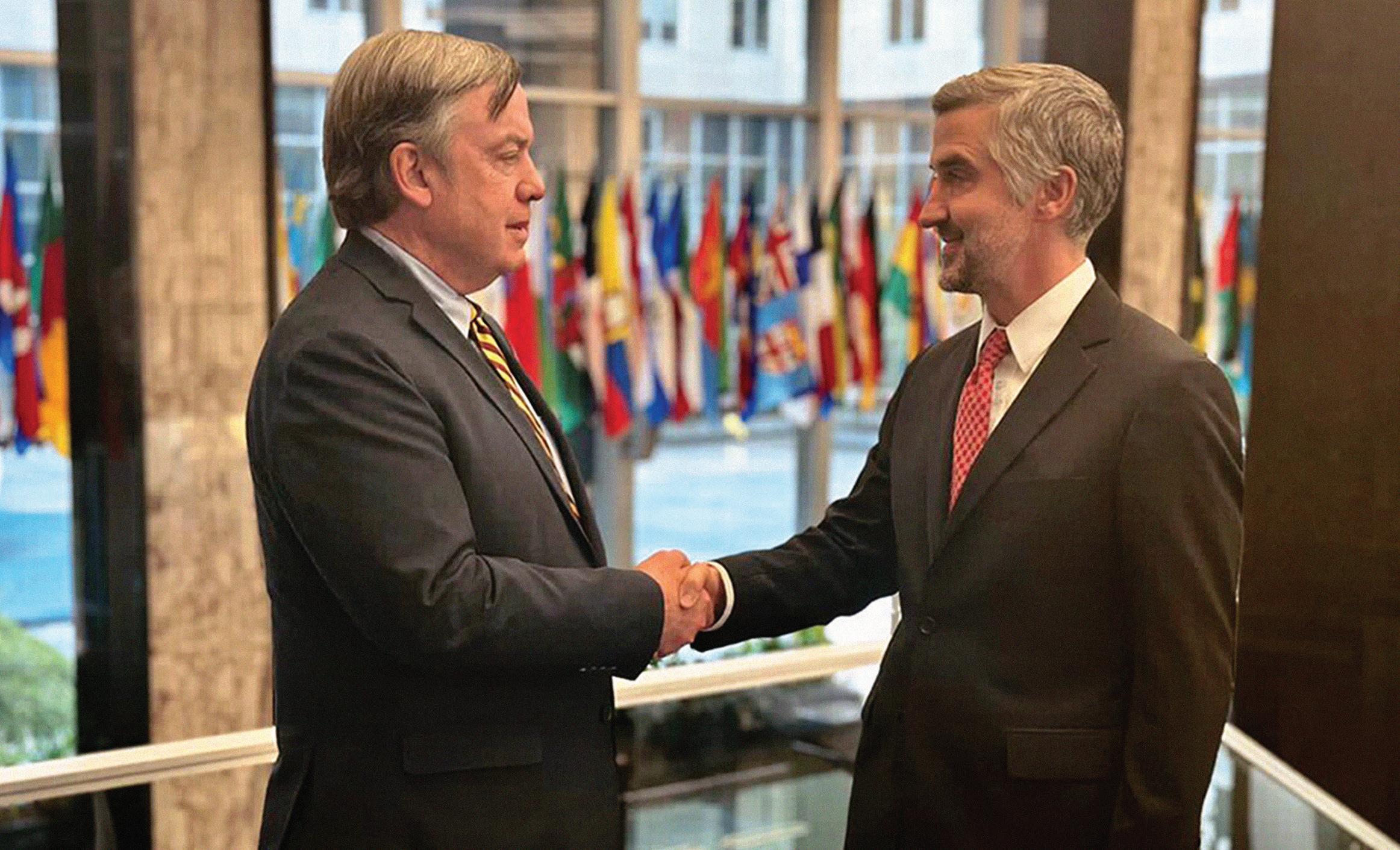
2 minute read
Building a resilient international microelectronics supply chain
As the federal government seeks to reestablish semiconductor manufacturing, research and development in the U.S. — often called “onshoring” — a lesser known component of its strategy is establishing a resilient supply chain in countries America regards as political and economic allies — known as “near-shoring” or “friend-shoring.”
To meet this objective, the U.S. Department of State’s Bureau of Economic and Business Affairs awarded a $13.8 million cooperative agreement to ASU in 2024 under the International Technology Security and Innovation (ITSI) Fund, created by the CHIPS and Science Act of 2022. This new initiative will bolster the assembly, testing and packaging capabilities in ITSI partner countries in the Americas and Indo-Pacific, enhancing a resilient supply chain for U.S. semiconductor manufacturers.
U.S. Bureau of Economic and Business Affairs
Assistant Secretary Ramin Toloui says it’s critical for U.S. partners and allies to work together to diversify critical supply chains and collaborate on technologies of the future to support shared economic growth, security and shared values.
Led by the State Department and ASU’s Ira A. Fulton Schools of Engineering and W. P. Carey School of Business supply chain faculty, the multiregional initiative is designed to:
Contribute to the growth and diversification of the global semiconductor ecosystem.
Help ITSI partners create the investment environment to support the semiconductor industry.
Bolster workforce capacity to create a pipeline of new talent.
Build workforce skills through high-quality workforce development programs.
Allow U.S. semiconductor manufacturers to leverage improved supply chains and labor connections from around the world.
No one country, including the United States, can produce or onshore everything it needs to manufacture semiconductors. As such, this collaboration with ASU is a huge step for ITSI and our work to facilitate new investments that will complement U.S. chip production.
— Ramin Toloui, assistant secretary, U.S. Bureau of Economic and Business Affairs










